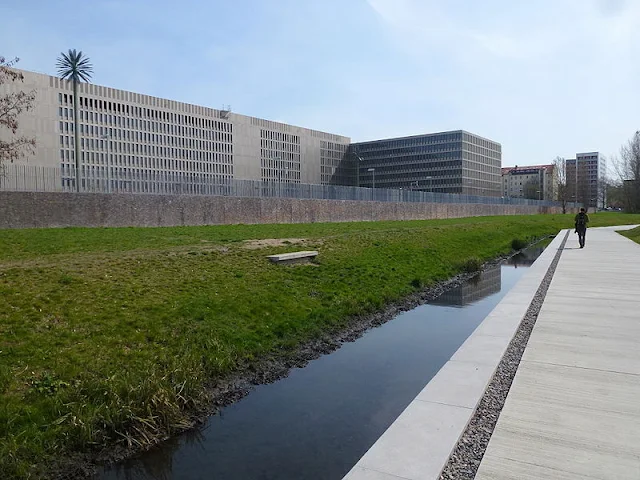 |
| Headquarters of Germany's Federal Intelligence Office, Berlin (by Fridolin Freudenfett [CC BY-SA 4.0] via Wikimedia Commons) |
Cyber security experts of the German government have warned of possible Russian cyber attacks on power plants that could cause blackouts across Europe.
According to German magazine Der Spiegel, the National Cyberdefence Centre (Nationales Cyber-Abwehrzentrum, NCAZ), an agency set up by the German federal government in 2011, issued a report warning that Russian hacking attacks on infrastructure could disrupt energy, water and gas supply as well as traffic. Due to the interdependence of Europe's infrastructure, a cyber attack on Germany could impact other European countries.
The report was drawn up by experts from the Federal Criminal Police Office, the Federal Intelligence Service, the Federal Office for the Protection of the Constitution, the Federal Office for Information Security and other government bureaus.
The German authorities have detected Russian cyber espionage activities, which appear to be aimed at gathering intelligence in order to launch targeted attacks on physical infrastructure, the report says.
German experts are worried about the level of sophistication of the Russian software, which according to the document is comparable to Stuxnet, a computer worm that is considered the world’s first digital weapon. Stuxnet was developed by the American and Israeli governments and was used to launch attacks on Iranian nuclear facilities in Natanz.
The report cites the attacks on infrastructure in Ukraine as an example of what Russian hackers could be capable of accomplishing in Europe. In 2015 Russian hackers took control of a power grid in the Ukrainian region of Ivano-Frankivsk, disabling three power distribution centres and 30 substations and causing a blackout that affected 230,000 residents. A similar attack which occurred in 2016 in Kiev left parts of the city without electricity.
Comments
Post a Comment